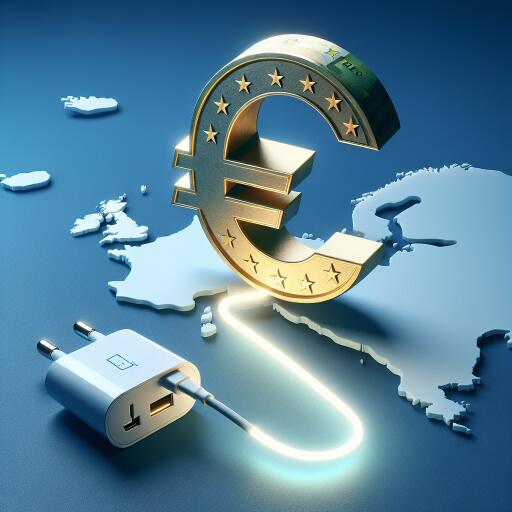One Currency, One Charger: How the EU Changed Life for Consumers
The transition to the euro as a common currency and the imposition of a standardized charging port across the European Union (EU) mark significant milestones in the bloc’s ongoing efforts to streamline and enhance the consumer experience. As the EU continues to evolve, these changes reflect its commitment to simplification, consumer protection, and technological cohesion.
The Euro: A Currency for Europe
More than two decades have passed since the inception of the euro, a period during which the European landscape witnessed the phasing out of iconic national currencies such as the Deutsche Mark, the Franc, the Italian Lira, and the Peseta. Today, the euro stands as the sole legal tender in 20 of the 27 EU member states, symbolizing not just an economic union, but a shared identity.
The euro’s adoption simplified numerous aspects of life, most notably by eliminating fees for money transfers within the eurozone and freeing travelers from the hassle of currency exchange. Despite initial scepticism in countries like Germany, where the euro was feared to catalyze inflation, the currency has since garnered widespread acceptance. Indeed, a recent survey revealed a remarkable 79% approval rating for the euro amongst its users, underscoring its perceived benefits for the EU.
Communication without Borders: The End of Roaming Fees
In 2017, the EU achieved another consumer-friendly milestone by abolishing roaming fees, thus ensuring that the costs of calls, texts, and mobile data would no longer spike due to cross-border travel within the bloc. This move has proved immensely beneficial for individuals who live and work across different EU countries, eliminating the need for multiple SIM cards and making communication seamless and affordable.
A Universal Charger for Electronic Devices
Adding to the EU’s legacy of consumer-focused reforms is the upcoming standardization of charging ports for portable electronic devices. Starting from this year, all devices sold within the EU, including phones, tablets, and various other gadgets, must feature the USB-C port for charging. While this directive aims to reduce electronic waste and consumer inconvenience, it initially faced resistance from some manufacturers. However, the adaptability of the market has been evident, with industry giants aligning their products to meet the new requirements.
Passenger Rights and Data Protection: Safeguarding Consumers
The EU’s commitment to consumer protection extends into the realms of travel and personal privacy. Regulation now mandates compensatory measures from airlines in the event of significant delays or cancellations, ensuring passengers are not unduly inconvenienced. Meanwhile, the General Data Protection Regulation (GDPR), introduced in 2018, empowers individuals to have greater control over their personal data, significantly impacting the digital advertising landscape.
These initiatives, though occasionally generating mixed feelings among consumers due to their implementation specifics, nonetheless highlight the EU’s overarching goals of enhancing consumer welfare and fostering a unified, user-friendly marketplace.
Conclusion
The transition to a single currency, the end of roaming charges, the advent of a unified charger standard, and strides in passenger rights and data protection are but a few examples of how the European Union is reshaping daily life for its citizens. Each measure, in its own way, builds towards a more integrated, convenient, and consumer-friendly European experience, reflecting the EU’s vision of a cohesive and harmonious continent.
